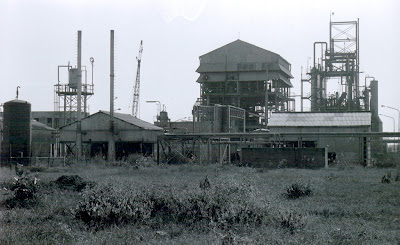 July 25, 2023
July 25, 2023 Pramod Pathak
Pramod Pathak Bhopal, Shopping Markets
Bhopal, Shopping Markets
 July 25, 2023
July 25, 2023 Pramod Pathak
Pramod Pathak Bhopal, DB City, Mall, Shopping Markets
Bhopal, DB City, Mall, Shopping Markets
DB City Mall is one of the prominent and popular shopping malls located in Bhopal, Madhya Pradesh, India. It is a modern retail and entertainment complex that offers a diverse range of shopping, dining, and entertainment options for residents and tourists. Here are some key details about DB City Mall in Bhopal:
1. Location: DB City Mall is situated in the Arera Hills area of Bhopal, a well-developed neighborhood known for its commercial establishments and residential complexes.
2. Shopping: The mall houses a variety of retail stores, brand outlets, and boutiques, offering an extensive selection of products, including clothing, footwear, accessories, cosmetics, electronics, home decor, and more. Shoppers can find both national and international brands within the mall.
3. Dining: DB City Mall has a dedicated food court and several restaurants, cafes, and fast-food outlets. Visitors can indulge in a wide array of cuisines, ranging from local Indian delicacies to global favorites.
4. Entertainment: The mall features entertainment options like a multiplex cinema, gaming zones, and indoor recreational activities, providing a complete experience for families and friends.
5. Events and Activities: DB City Mall often hosts events, promotions, and special activities during festivals and holidays, creating a lively and festive atmosphere for visitors.
6. Convenience: The mall offers ample parking space and easy accessibility via various modes of transportation, making it a convenient destination for shoppers.
7. Operational Hours: The mall typically operates from morning to late evening, accommodating shoppers throughout the day.
The complex has over 1.3 million square feet of floor space and consists of seven floors, as well as a ground floor and a lower ground floor. It includes shopping stores, entertainment complexes and leisure activities and has a six-screen multiplex cinema operated by Cinepolis. DB City Mall has become a favorite hangout spot for locals and a must-visit destination for tourists in Bhopal. Its modern infrastructure, air-conditioned environment, and diverse offerings make it an ideal place to spend leisure time, shop, dine, and catch up on the latest movies. Whether you are looking for a shopping spree, delicious food, or entertainment, DB City Mall offers a well-rounded experience for visitors of all ages. Before planning a visit, it's advisable to check for any updates on the mall's operating hours, events, and safety protocols.
 July 25, 2023
July 25, 2023 Pramod Pathak
Pramod Pathak 10 Number Market, Shopping Markets
10 Number Market, Shopping Markets
10 Number Market in Bhopal is a lively shopping spot for all age group, offering a variety of fashionable clothing, accessories, and footwear at affordable prices.
For visitors interested in exploring the latest trends and grabbing some trendy items, 10 Number Market in Arera Colony, Bhopal, seems like a promising destination. The operating hours from 10:00 AM to 9:00 PM on most days provide ample time for shoppers to browse through the market's offerings and make their purchases.
As with any shopping area, it's always a good idea to check for any recent updates or changes in operating hours before planning a visit. Additionally, local recommendations and reviews from other shoppers can provide valuable insights into the market's offerings and shopping experience.
Overall, 10 Number Market adds to the diverse retail landscape of Bhopal, catering to the style needs and preferences of the city's younger population. Visitors can look forward to exploring the latest fashion trends and finding affordable and stylish clothing, accessories, and footwear.
 July 25, 2023
July 25, 2023 Pramod Pathak
Pramod Pathak Bhopal, Bhopali, Habibganj Market, Shopping Markets
Bhopal, Bhopali, Habibganj Market, Shopping Markets
Habibganj Market is another popular shopping area located in Bhopal, the capital city of Madhya Pradesh, India. It is a bustling marketplace that caters to the needs and desires of shoppers from various walks of life. Here are some key details about Habibganj Market:
1. Location: Habibganj Market is situated in the Habibganj area of Bhopal, which is a well-developed and prominent neighborhood known for its commercial and residential establishments.
2. Shopping: The market offers a wide range of products, including clothing, footwear, accessories, electronics, home appliances, toys, and more. It caters to different tastes and budgets, making it a versatile shopping destination.
3. Clothing and Fashion: Habibganj Market is known for its variety of clothing options, from traditional Indian wear to modern western attire. Shoppers can find an assortment of dresses, sarees, shirts, trousers, and more.
4. Electronics and Gadgets: The market has numerous electronic shops selling smartphones, laptops, tablets, cameras, and other gadgets, making it convenient for tech enthusiasts to explore the latest technology.
5. Footwear and Accessories: Habibganj Market also houses a wide selection of footwear, bags, belts, and other accessories, providing shoppers with multiple choices to complement their outfits.
6. Food and Refreshments: The market area is dotted with eateries, cafes, and food stalls that offer a variety of snacks, beverages, and meals, allowing shoppers to take a break and enjoy a quick refreshment.
7. Accessibility: Habibganj Market is easily accessible by various modes of transportation, and it attracts both local residents and visitors from other parts of the city.
Habibganj Market adds to the vibrant shopping culture of Bhopal, providing shoppers with a diverse shopping experience. The market's mix of products, affordable prices, and convenient location make it a preferred destination for residents and tourists alike. Visitors can explore the market's offerings, immerse themselves in the city's retail scene, and discover unique finds that reflect the city's lifestyle and traditions.
.JPG)












